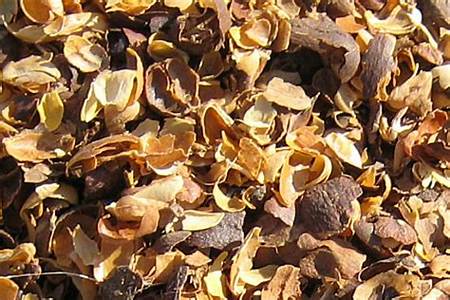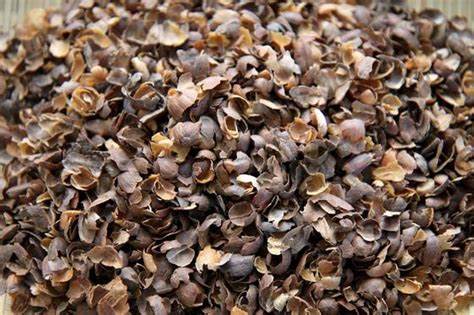Transforming Coffee Bean Husks into Charcoal
In the world of coffee, where the aroma of freshly brewed coffee beans captivates the senses, there lies an often-overlooked byproduct with untapped potential – coffee bean husks. These husks, discarded in large quantities during coffee processing, can be transformed into valuable charcoal through innovative and sustainable methods. This post delves into the journey of coffee bean husk to charcoal, exploring the processes, environmental benefits, and the exciting possibilities that arise from turning a once-neglected waste stream into a resource with both economic and ecological value. View more information: coffee bean husk charcoal machine.

Understanding Coffee Bean Husks and Their Composition:
Coffee bean husks, also known as coffee chaff or parchment, are the protective outer layer of the coffee bean that is removed during the milling process. This byproduct is lightweight, fibrous, and often considered waste in traditional coffee production. However, its composition makes it a promising candidate for charcoal production.
The primary components of coffee bean husks include cellulose, hemicellulose, lignin, and volatile compounds. These elements contribute to the energy content and combustion characteristics that make coffee husks suitable for conversion into charcoal.
Charcoal Production from Coffee Bean Husks:
The conversion of coffee bean husks into charcoal involves thermal processes similar to those used in other biomass-to-charcoal transformations. The two main methods employed are pyrolysis and carbonization.
Pyrolysis: Pyrolysis is a high-temperature process that breaks down organic materials in the absence of oxygen. In the case of coffee bean husks, pyrolysis involves subjecting the material to temperatures between 300 to 800 degrees Celsius. This results in the release of volatile gases, liquids, and the formation of solid char. The char can be further processed into charcoal. Pyrolysis not only yields charcoal but also produces valuable by-products like bio-oil and syngas.
Carbonization: Carbonization, like pyrolysis, is a thermal process that occurs in the presence of limited oxygen. Coffee bean husks are heated to temperatures ranging from 300 to 600 degrees Celsius. This slow, controlled process removes volatile components, leaving behind a solid residue – the charcoal. Carbonization is a more traditional method often used in artisanal or small-scale charcoal production.
Environmental Benefits of Coffee Bean Husk to Charcoal Conversion:
Waste Reduction and Valorization: Coffee bean husks, when converted into charcoal, contribute to waste reduction by repurposing what would otherwise be discarded as agricultural residue. This waste valorization aligns with the principles of a circular economy, where byproducts are transformed into valuable resources.
Renewable Energy Source: Charcoal derived from coffee bean husks serves as a renewable energy source. The combustion of coffee husk charcoal releases carbon dioxide into the atmosphere, but the carbon emitted is part of the natural carbon cycle. As coffee plants absorb carbon dioxide during their growth, using coffee husks for charcoal creates a closed-loop carbon system.
Reduced Deforestation Pressure: The demand for traditional wood charcoal has contributed to deforestation in many regions. By utilizing coffee bean husks for charcoal production, there is a potential to alleviate the pressure on forests. This sustainable alternative helps conserve biodiversity and ecosystem services.
Emission Reduction: The controlled conversion of coffee bean husks into charcoal can result in lower emissions compared to open burning or other disposal methods. Advanced technologies and optimized processes can minimize the release of harmful pollutants, contributing to cleaner air and a healthier environment.
Applications of Coffee Bean Husk Charcoal:
Cooking Fuel: Coffee bean husk charcoal can be employed as an eco-friendly cooking fuel. Its high energy density and clean combustion characteristics make it a suitable alternative to traditional wood or charcoal for cooking in households and restaurants.
Industrial Processes: Industries requiring heat for various processes, such as drying, heating, or even power generation, can benefit from coffee bean husk charcoal. The energy-rich properties of the charcoal make it a versatile and sustainable choice for industrial applications.
Activated Carbon Production: Charcoal derived from coffee bean husks can be further processed to produce activated carbon. Activated carbon has diverse applications, including water purification, air filtration, and removal of impurities in industrial processes. This adds significant value to the coffee husk charcoal conversion process.
Soil Amendment and Agriculture: Biochar, a form of charcoal, can be produced from coffee bean husks and used as a soil amendment in agriculture. Biochar enhances soil fertility, water retention, and nutrient availability. Applying coffee husk biochar to agricultural soils promotes sustainable farming practices.
Challenges and Considerations:
Economic Viability: The economic viability of coffee bean husk to charcoal conversion depends on factors such as the cost of raw materials, technology efficiency, and the market demand for sustainable charcoal products. Investment in advanced conversion technologies and infrastructure is essential for ensuring the competitiveness of coffee husk charcoal in the market.
Technology Optimization: The efficiency of the conversion process, whether through pyrolysis or carbonization, plays a significant role in the overall feasibility of coffee bean husk charcoal production. Research and development efforts should focus on optimizing these technologies to maximize yield, energy efficiency, and the quality of the end product.
Consumer Awareness and Market Acceptance: Building consumer awareness about the environmental benefits and sustainable characteristics of coffee bean husk charcoal is crucial for market acceptance. Promoting the use of this eco-friendly alternative requires education and outreach to highlight its positive impact on the environment.
Supply Chain Logistics: Establishing an efficient supply chain for coffee bean husks, including collection, transportation, and storage, is essential for the success of charcoal production. Integration with coffee processing facilities can streamline these logistics and enhance the overall feasibility of the conversion process.
Innovations and Future Prospects:
Mobile Charcoal Units: Mobile charcoal units that can be deployed near coffee processing facilities are being explored. These units provide a decentralized approach to coffee bean husk to charcoal conversion, minimizing transportation costs and creating opportunities for local economic development.
Integration with Coffee Farms: Exploring opportunities to integrate charcoal production with coffee farms can create a closed-loop system. Coffee husks generated on the farm can be converted into charcoal, and the resulting biochar can be used to enhance soil fertility, creating a sustainable and regenerative agricultural practice.
Hybrid Conversion Technologies: Combining different conversion technologies, such as pyrolysis and gasification, in a hybrid system can optimize the overall efficiency of coffee bean husk to charcoal conversion. These integrated approaches can maximize energy recovery and yield valuable by-products.
Carbon Capture and Utilization (CCU): Investigating carbon capture and utilization technologies in coffee bean husk to charcoal conversion can further enhance the environmental benefits. CCU methods could involve capturing and utilizing carbon dioxide emissions generated during the conversion process.

Conclusion:
The journey from coffee bean husk to charcoal unveils a sustainable and transformative process that aligns with the principles of circular economy and waste valorization. By harnessing the potential of this often-overlooked byproduct, we not only address the environmental challenges associated with coffee processing waste but also contribute to the creation of a cleaner and more sustainable future. As technology continues to advance, and awareness grows, coffee bean husk to charcoal conversion stands as a beacon of innovation, offering both ecological and economic benefits in the realm of waste utilization and renewable energy production.